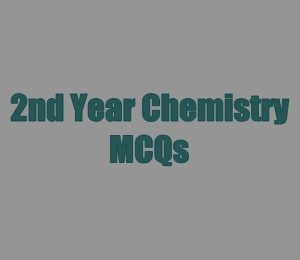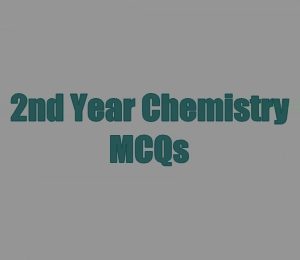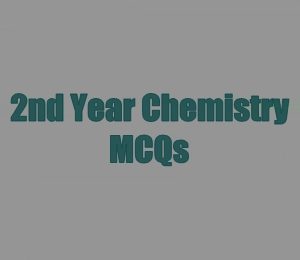Here you will be able to find the 2nd Year Chemistry Chapter 14 MCQs Macromolecules with Answers. There are some large molecules that are built up from small repeating units called monomers. There is an important concept of Polymerization and macromolecules. There are different types of polymerization on the basis of the polymerization of a different number of monomers. The Polymerization processes are classified into two types i.e. Additional polymerization and Condensation polymerization. Then there are biopolymers that are built from the skeleton of carbon atoms. The importance of Proteins and lipids is also discussed. In the end, the enzymes are discussed. Now check the important MCQs of this chapter below. Solve the quiz given below and check out the answers.
2nd Year Chemistry Chapter 14 MCQs
984



